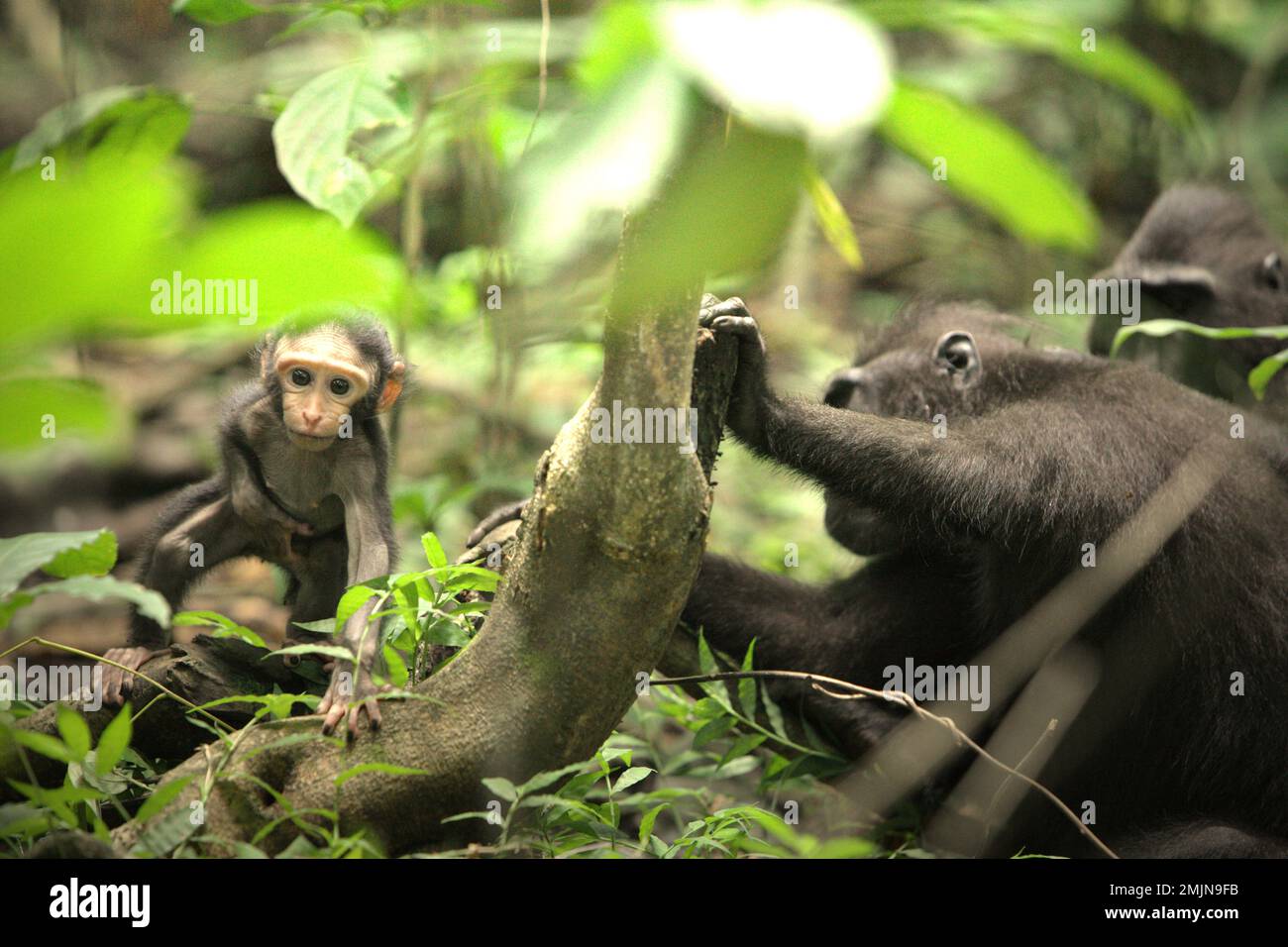A curious infant of Sulawesi black-crested macaque (Macaca nigra) is moving away from its mother during weaning period in their natural habitat, lowland rainforest in Tangkoko Nature Reserve, North Sulawesi, Indonesia. Weaning period of a crested macaque infant—from 5 months of age until 1-year of age—is the earliest phase of life where infant mortality is the highest. Primate scientists from Macaca Nigra Project observed that "17 of the 78 infants (22%) disappeared in their first year of life. Eight of these 17 infants' dead bodies were found with large puncture wounds." Meanwhile, climate...

Image details
Contributor:
Pacific Imagica / Alamy Stock PhotoImage ID:
2MJN9FBFile size:
59.4 MB (2.6 MB Compressed download)Releases:
Model - no | Property - noDo I need a release?Dimensions:
5582 x 3721 px | 47.3 x 31.5 cm | 18.6 x 12.4 inches | 300dpiDate taken:
20 January 2012Location:
Tangkoko Nature Reserve, North Sulawesi, IndonesiaMore information:
This image could have imperfections as it’s either historical or reportage.
A curious infant of Sulawesi black-crested macaque (Macaca nigra) is moving away from its mother during weaning period in their natural habitat, lowland rainforest in Tangkoko Nature Reserve, North Sulawesi, Indonesia. Weaning period of a crested macaque infant—from 5 months of age until 1-year of age—is the earliest phase of life where infant mortality is the highest. Primate scientists from Macaca Nigra Project observed that "17 of the 78 infants (22%) disappeared in their first year of life. Eight of these 17 infants' dead bodies were found with large puncture wounds."_ Meanwhile, climate change impact on the endemic species can be seen on changing behavior and food availability, that influence their survival rate._ "Like humans, primates overheat and become dehydrated with continued physical activity in extremely hot weather, " according to a scientist, Brogan M. Stewart, in his report published in 2021 on The Conversation._ "In a warmer future, they would have to adjust, resting and staying in the shade during the hottest times of the day. This could mean foraging less or not mating, which could limit overall food intake and change reproductive cycles, " he wrote._ Sulawesi black-crested macaque is among the primates which are currently critically endangered in small habitats, while currently experiencing year-round temperatures above their historic thresholds, he added._ "The climate change in every season influences the availability and distribution of foods that will change the primate's daily ranges and activities. These changes include food composition, feeding intensity, and range of foraging movement, " wrote Timothy O'Brien and Margaret Kinnaird on International Journal of Primatology in 1997.